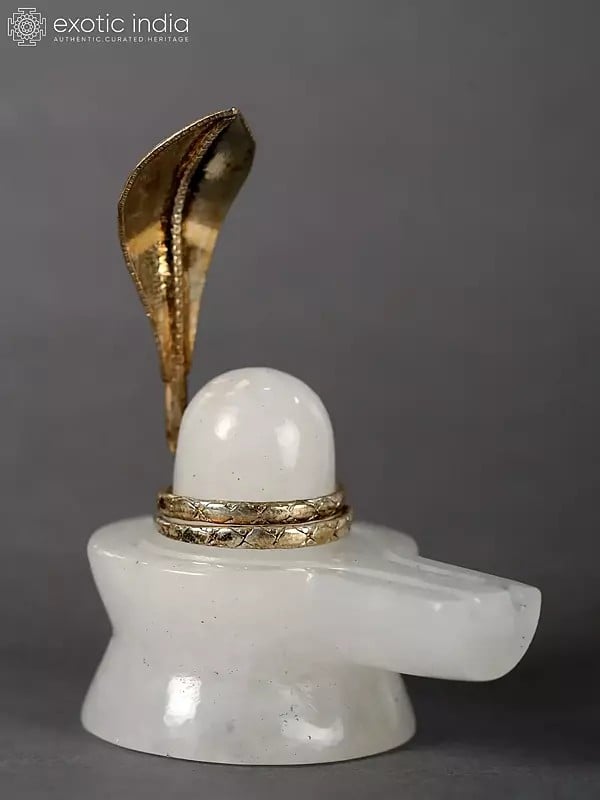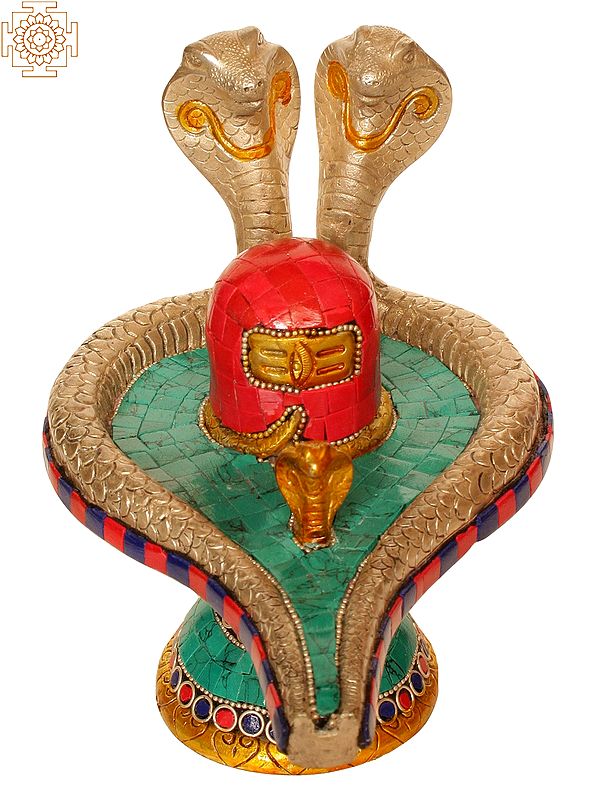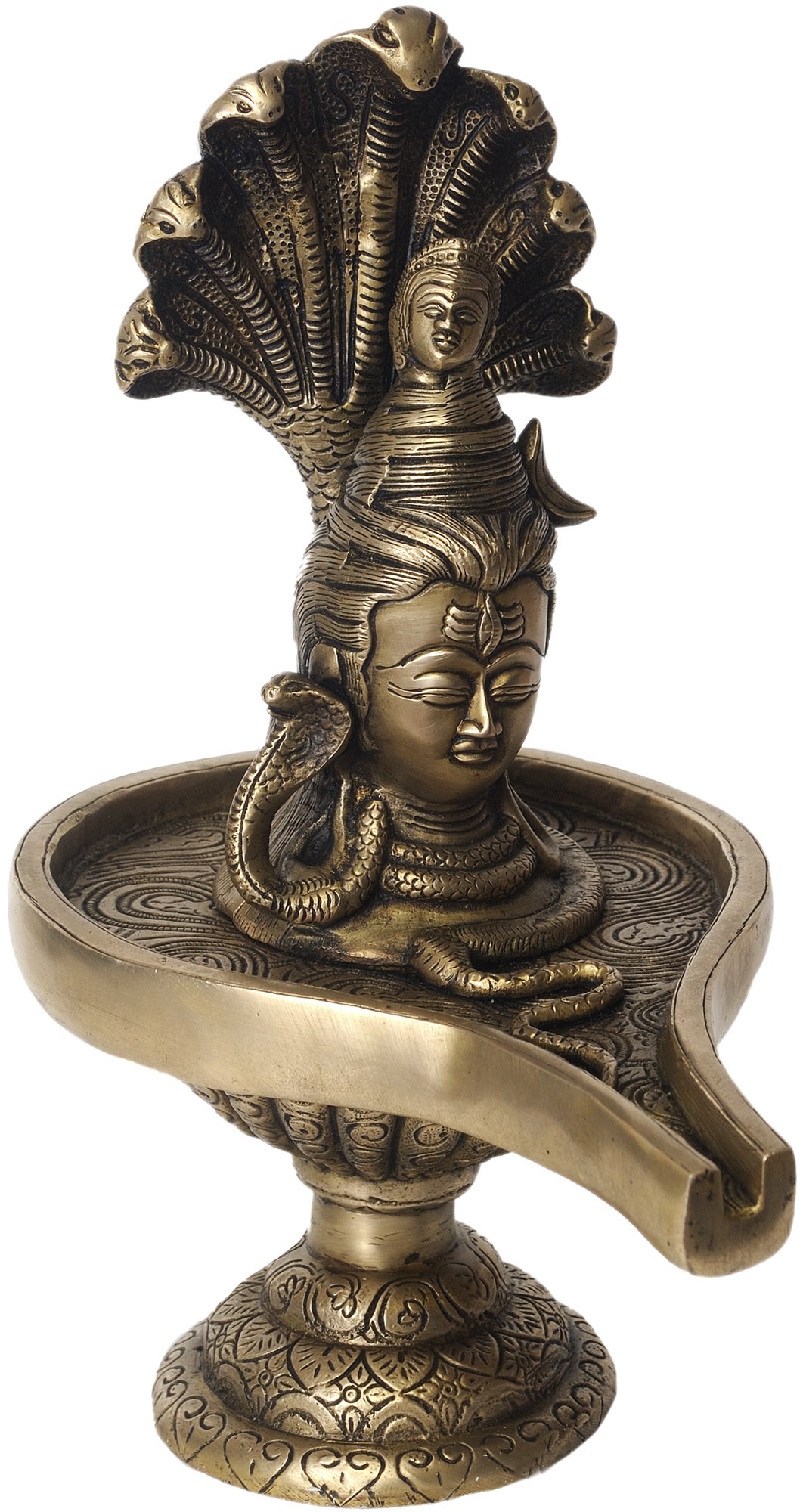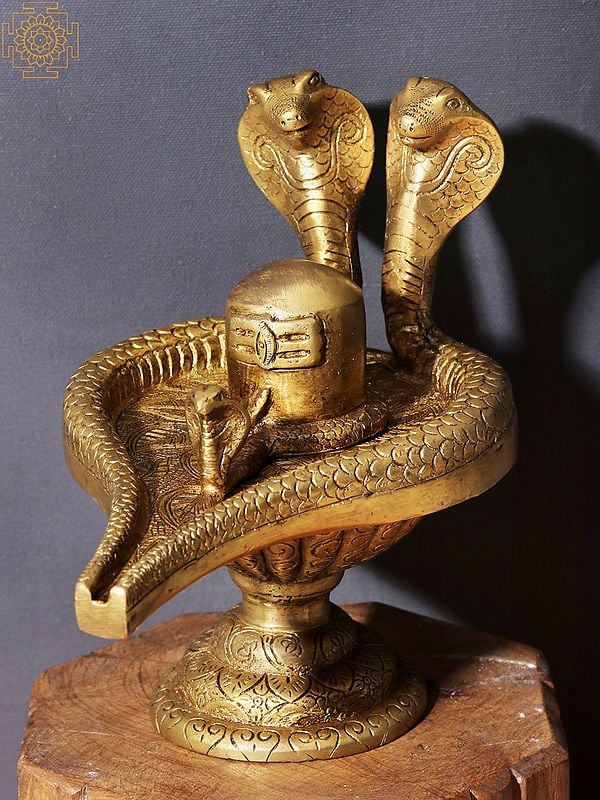The Mystical Powers of the Shiva Lingam: A Deep Dive
According to the Puranas, after Lord Brahma and Lord Vishnu
got into a fight over who was stronger, the Supreme God, Shiva, was asked to
intervene on behalf of all other gods. Assuming the shape of a
flaming linga, he challenged the fighting gods to find the beginning
(aadi) and end (anth) of the flame. While Lord Brahma used a swan to travel
high in search of the flame's tip, Lord Vishnu used Varaha to travel down
below. Despite going thousands of miles, neither could find the tip, which is
when Brahma made the false claim that he had seen it. Lord Shiva suddenly
arrived from the center of the flaming pillar, revealing Brahma's lie. Both
Brahma and Vishnu eventually had to recognize Shiva's supremacy. Shiva then
cursed Brahma, saying that he would never be prayed to be anybody, which is why
there are so few temples devoted to him. And because the Ketaki flower helped
Brahma in his deception, she too was cursed to be presented in any form of
worship. Because all of this happened on the 14th day of the Phagun month, it
is considered extremely auspicious and is still commemorated as
Mahashivratri!
Whether you are seeking to buy a Shiva statue for your house or a picture to hang in your living room, you must remember that he is no ordinary god - he is pure power! Lord Shiva is worshipped and prayed to in a various forms - statues, photos, and paintings abound - but the one form that virtually everyone recognizes is the Shivalinga. While there has been a lot of sexual interpretation of the nature of the symbol, it is regarded as a phallus, according to Hindu mythology, it is a symbol of sheer power. The first evidence of Shiva dates back to the Indus Valley Civilization when a seal was discovered during excavation, depicting a naked man with an erect penis, sitting in a yogic throne position, surrounded by animals. This is thought to be Shiva's oldest form, as Yogeshwara (lord of yoga), Lingeshwawa (lord of the phallus), and Pashupati (lord of animals). He is represented as Rudra, the one to be feared, in the Vedic scriptures, and as the supreme Brahman in subsequent traditions!
In Hindu mythology, linga refers to Lord Shiva's mark and his omnipotence and formlessness. This is the symbol of creation and represents the Brahmanda, or cosmic egg, to Hindu devotees. It also represents the three creators - Brahma, Vishnu, and Mahesh (another name for Shiva) - the circular base or peetham is known as the Brahma Pitha, the bowl-like structure is known as the Vishnu Pitha, and the elongated and rounded head is known as the Shiva Pitha. There are 12 Jyotirlingas and 5 Pancha-bhuta Lingas in India today: the Jyotirlingas are located in Kedarnath, Kashi Vishwanath, Somnath, Baijnath, Rameswar, Ghrusneswar, Bhimshankar, Mahakal, Mallikarjun, Amaleshwar, Nageshwar, and Tryambakeshwar, while the Panchabhuta Lingas are located in Kalahastishwar, Jambukeshwar, Arunachaleshwar, Ekambareshwar, and Chidambaram.
The Shivalinga is thought to radiate energy that assists you
to focus and concentrate, which is why ascetics would always meditate near a
lingam. Even today, it is regarded as a source of enormous power; yet, there
are several dos and don'ts associated with having a Shivalinga, particularly if
you intend to have one installed in your house. The establishment of a
Shivalinga necessitates the requirement for frequent prayer and ritual. This is
why, while many individuals might think about purchasing a Shiva statue online,
they will not consider purchasing a Shivalinga. There must be daily prayer and
offerings to the Shivalinga, women in their menstrual cycle should not approach
it, the lingam cannot be kept in an enclosed space, and it must be placed high
above the ground. Failure to adhere to all of these rituals and practices is
thought to bring tremendous misfortune to the home and its owners, which is why
you should not obtain one unless and until you are prepared to do everything
that is required.
Over the last few years, there has been an increase in the demand for religiously themed artwork and home decor items - what is interesting is that not all of them are acquired to place them in the pooja room; there are others who seek to incorporate the same into their living spaces. You may have noticed vibrant Krishna paintings on living room walls, big Om decals on study room walls, and Ganesha idols on coffee tables! This is a great way of integrating a sense of spirituality into your home, but Shiva is not to be played with - for one thing, putting a Shiva picture or statue in the bedroom is frowned upon! Similarly, an idol of the god in a state of anger is not appropriate for the home since it is supposed to repel positive energy.







Comments
Post a Comment